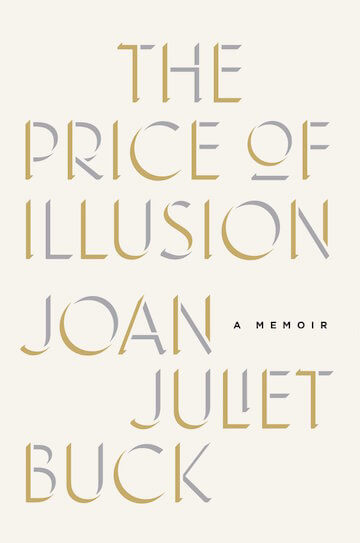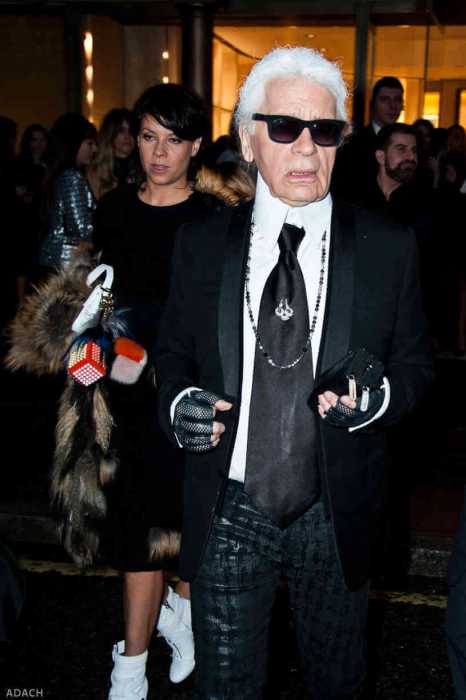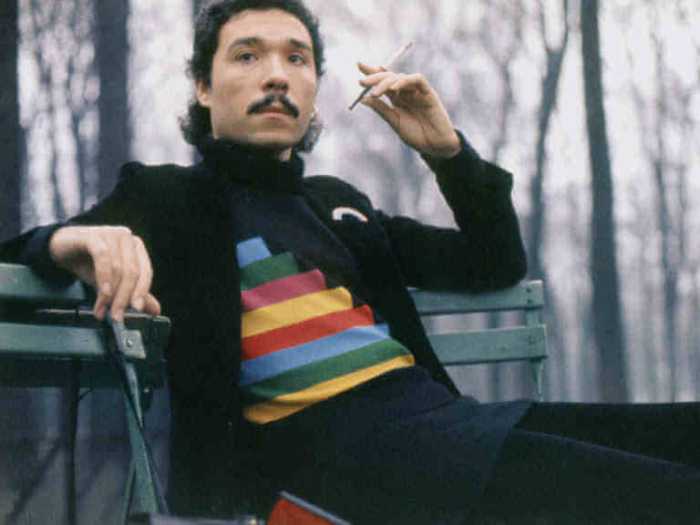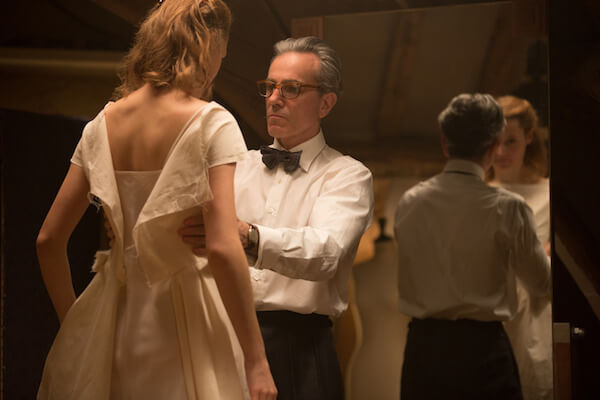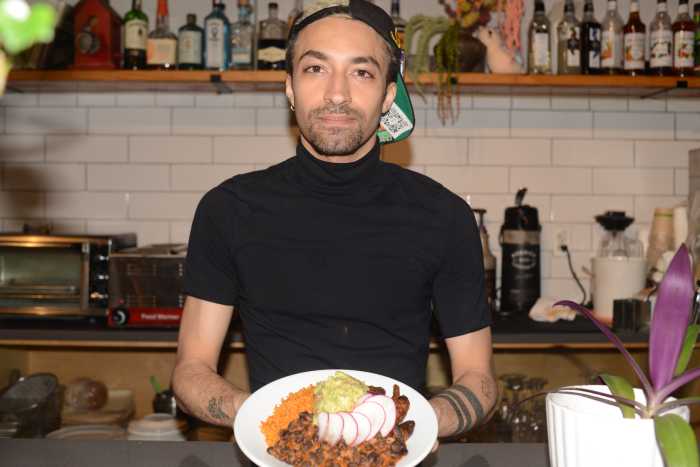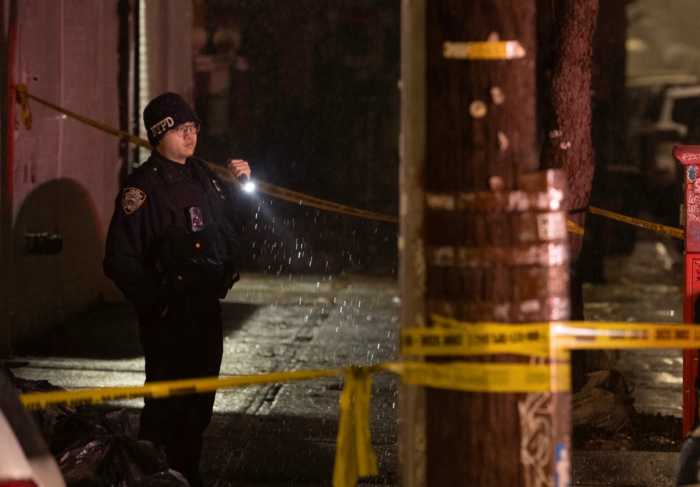Joan Juliet Buck. | LACOMBE
It would be hard to find a more diverting summer read this year than Joan Juliet Buck’s memoir, “The Price of Illusion.” Buck, blazingly intelligent, witty, and strikingly attractive with volumes of personal style, has led a mesmerizingly kaleidoscopic life, the hippest female Zelig one can imagine, forever finding herself in the right surroundings and crowds, many deserving the appellation “legendary.” Her writing has a febrile, irresistible rhythm to it, admirably spare in style yet rife with descriptive richness.
Born in Los Angeles, Buck met me in a Madison Avenue coffee shop and spun the yarn of her life like Scheherazade in Zac Posen, beginning with, “Dad [Jules Buck] was a young producer at Fox when I was born. Mom was a child actress from 9 until 19 [and close buddy of Lauren Bacall, when she was starting out] and stopped when she got married. They moved to Paris when I was three and a half with my grandparents. So my first language was French, which was actually the cause of everything in my life and the reason why I was given French Vogue.”
This career episode ended startlingly, with Buck being ordered by publisher Condé Nast to go to rehab, although she had no real addictions to speak of.
IN THE NOH: “The Price of Illusion” is one ultra-chic, compulsive read
Buck’s gift for attaining fabulous friends started early. The gifted, eternally underrated film noir director Robert Siodmak “was my first friend and he took this picture [in her book] of my father, which to me is the best ever. If you watch ‘The Killers’ again, and many of his other films, there is always a guy sitting in an armchair exactly like this, shot from the same angle. He was so wonderful, God I loved him, and his films are filled with extraordinary black and white compositions.”
“The Killers” was the first film to really spotlight the ravishing young Ava Gardner: “Ava was around the family a little, but late. There was this diaspora and she ended up in Spain and then moved to London. If you want the real Jewish geography, there was this writer called Robert Ruark, who wrote bestsellers and shot big and small game, like dik-diks, which you’re not supposed to kill. He had this apartment in Park Lane which was filled with taxidermy, and Ava was living there. I remember one New Year’s there I found quite pathetic, with Ava, who was kind of drunk and loud, and it felt so lonely. There were a couple of guys there who sort of admired her, but it wasn’t anything to do with anything and seemed sad. Everybody drank from these nasty glasses, and you could hear the ice cubes.”
As we talked, in a true conversation that leapt from subject to subject, extraordinary connections kept popping up, like the fact that one of my all-time favorite films, the 1969 musical remake of “Goodbye, Mr. Chips,” was produced by her father.
“My father always said it was one of Peter O’Toole’s best performances. I always used to hate that movie because when they opened the film in DC, I was 20 and went to the premiere and then came back to New York and discovered my roommate, Eva, a model, had died, so the events are stuck together in my mind. But whenever I see it, I weep. The songs!”
Devastated by this death as well as that of the fiancé of her first roommate that year and of Ricki Huston, mother of her childhood friend, Angelica, Buck, who had dropped out of Sarah Lawrence to work at Glamour magazine, quit her job, and went back to London where her parents had moved.
“I was traumatized and did nothing. We shared a house with Peter O’Toole’s sister and her husband, Derek Coombs. My parents had gone to Venezuela to make a real dog of a movie, ‘Murphy’s War,’ and one day Derek said to me, ‘Darling, I’m running for Parliament, and this is the first time the 18-year-olds have the vote. I think you should write the letter for my campaign for the 18-year-old vote. I said, ‘But you’re a conservative and I’m an American Democrat!’ ‘Oh, just write it.’
“So I write this letter and it’s a fucking landslide victory for the Conservative Party! So I go from this traumatized, horrified not quite 21-year-old who’s had three people die where she’s living to writing this letter that perhaps contributes to a right-wing victory. And then Rupert Murdoch gives me a magazine to edit and then takes all his money out of it, so I’m out of a job, and I go to French Vogue. But they don’t want me because I’m a professional.”
But, in 1994, French Vogue in fact made her editor-in chief, the only American to ever edit a French magazine, a job she held until 2001. She’d been very well-connected in Paris, describing her life as “exquisite. From October 1985 to March 1988, I had dinner with Pierre Bergé, Hélène Rochas, Clara Saint, Madison Cox, these exquisite people every night, except for a few love affairs I slipped in. This was in all the best restaurants, but I never saw anyone I knew at any other table, which was creepy. It was as if we were under a dome.”
And one of her first intimations of the price of illusion.
“But it was very restful to hang out with them, compared to New York. After a day of writing my third novel in the late 1980s, I’d go out to dinner with New Yorkers and they’d ask, ‘How’s it going? What’s your advance? How’s your agent, how’s it going to do?’ In Paris, it would be, ‘Oh, darling should your glasses be so big? You are so boring in brown, you look much more interesting in blue. Don’t wear brown.’ Nobody gave a shit about the book or its future.”
Another friend, Karl Lagerfeld, designed her wedding dress and would let her pick out a complimentary couture outfit each year after she left French Vogue.
“He loaned me his house in Monte Carlo when my father was living in Paris near me. ‘Why don’t you take it, because I prefer Biarritz now.’
“The chauffeur drives us up this winding road with two security checkpoints, not manned, but gates. We get up to the top and there’s this beautiful little fairy tale chateau called La Vigie, which had belonged to the Grimaldis. [Princess] Caroline had either loaned or given it to him. There were lots of books, flowers, and furniture, bedside tables with chairs piled with picture books, very fancy and beautiful.
“There’s a butler, cook, and chauffeur who announce, ‘We serve dinner at seven and then we go home,’ and the chauffeur said, ‘I will be at your disposal during the day.’ I realized that every night I would be locked up in this palace with my father with no way of getting out and no one could come visit because of the checkpoints. It rather symbolized my life, and it was 1997, the summer that Princess Diana and Dodi al Fayed were on their yacht. I really didn’t know anyone in Monte Carlo and my father didn’t want to see any of his friends, so we would read the English newspapers I’d pick up every morning, have dinner on the terrace, and then there would be fireworks at the casino at night. My father would be asleep, and, after seeing all the news pictures of Diana swimming and necking with Dodi, I was thinking I want to be on a boat with a boyfriend. I want sex in the cabin, Bain de Soleil, not locked up in a palace with my father like a fairy tale princess.”
That wedding dress Lagerfeld designed for her — “like a riding habit with an under part that was all taffeta; I gave it to the Met” — was for her marriage to a wonderful writer I greatly admire, John Heilpern.
“I was 28 when we got together for not that long, five years. But he taught me about paragraphs! I was then features editor for British Vogue and had done my stint as Women’s Wear Daily correspondent in London and Italy, but I had never thought about paragraphs and it was John who said, ‘You follow a thought to the end, and then you go to the next one [laughs].
“He’s a good guy and a friend and made me laugh a lot, but it’s difficult living with another writer. We found a New York apartment that had two little studies next to each other separated by a door. I was supposed to be working on my first novel and various Vogue pieces, and he was the correspondent for the London Observer. We would listen to each other’s typewriters. I would hide and stand in the closet, crocheting compulsively. John would say, ‘You’re not typing!’ And I would reply, ‘I’m filing!’ We drove each other nuts. And then there’d be the all-nighter when you’d keep the other company which they don’t want, and whoever was working harder would just suck all the energy out of you. We’d both be on deadline and then we’d nap, and it was a battle for the energy.”
Buck is single at the moment.
“Mike Nichols was everything anyone would aspire to be in terms of worldliness and when I interviewed him, someone had just broken up with me. He said, ‘Oh, it will just be a minute [before I met someone else].’ And of course it wasn’t a minute, because I got French Vogue and was a nun for three and a half years, never had less sex than when I was editing that. Whenever any girl I knew was given a Vogue job, I’d say, ‘You have six weeks before you start? You fuck! Just fuck them every single day, all day long because once you take on the job, it’s over!’
“I’ve had like three big relationships since I came back from France when I was 52, so that’s quite a lot for somebody in their older years. Right now I wouldn’t mind eight adoring men to help me move my books around and take care of shit, but I’m at the age when men and women are very different. Because of the Internet, men have porno standards, so I think it’s become more difficult for older women because, frankly, teetering on a pair of skyscraper heels was not expected of somebody who’d be my age 20 years ago.
“I like a man that I can laugh with and have an actual dialogue, with shared values. This sounds like fucking Christian Mingle but I don’t want to be in a situation where I’m afraid that if he catches sight of my double chin against the light of the kitchen window, he will be disgusted to realize my age. I don’t want to be in some weird illusion of being younger than I am, some Shangri-La where he goes, ‘Ohmigod! You’re an older woman! What was I thinking?’
“As far as meeting a new old person, I just narrated a play and someone in the cast keeps wanting me to meet their father and I’m not that interested. As you get older, everything remains the same but it takes longer to do it. I probably would have written this book faster if I was younger, but I just wanted to carefully go through it, fixing it.”
THE PRICE OF ILLUSION | By Joan Juliet Buck | Simon & Schuster | $30 | 416 pages

